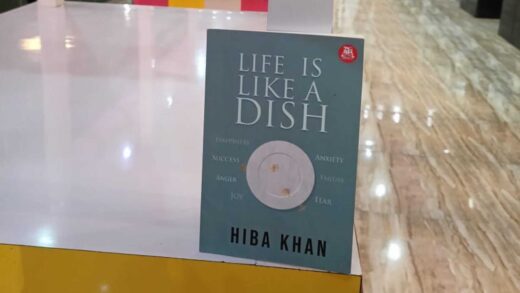“Nature is pleased with simplicity. …”
– Frederic Chopin
Have you met Simplicity?
Lao Tzu to Leonardo Da Vinci. Walt Whitman to Albert Einstein. Charlie Chaplin to Steve Jobs. Famous personalities down the centuries have advised us to keep things simple. Coco Chanel, that legendary godmother of Parisian haute couture, once said, “[simplicity] is the keynote of all true elegance”. But you don’t need to be a fashion connoisseur to know that. Even a great martial artist like Bruce Lee was aware that breathtakingly beautiful simplicity required a constant”…hack[ing[ away at the unessential”.
The Poet, the Philosopher, and the Scientist have all made yet another telling observation: simplicity leads to clarity, both of thought and expression thereby clothing it in elegance and grace. In fact, in ancient Greece, simplicity was revered as “…the spirit and personification of ease…”a nurse of Athena”, the Greek goddess. . .of wisdom and handicraft”. Clearly, simplicity enjoys an ancient and divine pedigree.
Why seek Simplicity?
Because we must. Lucid and focused writing almost always ensures greater reader engagement than otherwise. The printed pages seem alive and ‘talk’ with you, as it were. The words no longer float in front of your eyes and the paragraphs hold your attention as they lovingly dwell on one point before moving on to the next. There are no exotic words and ‘purple phrases’ that draw attention to themselves and, instead, the focus is entirely on holding up a picture for your consideration and pleasure.
What’s more, interacting with the text becomes a delightful activity. You now can afford to spend more energy on the ideas it generates rather than on struggling to understand the author’s ‘turgid prose’: full of needlessly-complex sentence structures, and frequent use of unfamiliar vocabulary. Needless to say, it is a style that is excessively ornate and embellished and is definitely not the epitome of elegant writing. Bid it adieu.
Recall The Alchemist of Paulo Coelho:
“. . . Before a dream is realized, the soul of the world tests everything that was learned along the way. It does this so that we can, in addition to realizing our dreams, master the lessons we’ve learned as we’ve moved toward that dream. That’s the point at which most people give up. That’s the point, as we say in the desert, that one dies of thirst just as the palm trees have appeared on the horizon. Every search begins with beginner’s luck and ends with being severely tested. The darkest hour of the night comes just before the dawn.”
Can anyone be left unaffected by the undeniable charm of such beautiful prose? Would you say that the language is notoriously hard to understand? I think we both know your response. Yet, don’t you also agree at the same time that the above passage is an excellent example of a writing style that is at once simple and elegant? Yes? There! what did I tell you?
Why must Simplicity bless IELTS Writing?
Because it is sorely required. The IELTS examiner looks forward to correcting a report, a letter, or an essay that presents a logical progression of thought in a simple yet attractive writing style. The more graceful and natural-sounding the language, the higher your score in the Writing module. None of my students had to resort to ‘difficult’ words and expressions in order to achieve a high score. But yes, I have had to convince a few of them – at least initially – not to, among other things, ‘opine‘ in the ‘epistles‘ that they write to their friends.
By the way, have you ever done something like that in your daily life? I mean ‘opined’? Or did you prefer to ‘strongly believe’ something instead? And were you even aware that our current education system is characterized by what can only be described as ‘reiteration of the pedagogy’ syndrome? On hearing this, the layman in me was suitably impressed, though I admit to being somewhat bewildered as well. But when I was patiently explained by the student, the meaning became crystal clear. Pity he will not be around to do the needful when it is time for his paper to be checked. It would be unfortunate indeed if the examiner too required the candidate’s assistance in a similar way. . .
Beware! Don’t even think of doing this. Ever.
Of course, you must avoid “[s]lang, colloquial terms and free and easy constructions [that] are not proper in an essay.” But it “is a mistake to attempt any flights of fine writing. The language and sentence construction should be simple, direct and natural.” The observation is not mine. This was mentioned as far back as 1936 by Wren & Martin in High School English Grammar & Composition. Even earlier, the Fowler brothers had begun their monumental work, The King’s English (1906), thus:
Any one who wishes to become a good writer should endeavour, before he allows himself to be tempted by the more showy qualities, to be direct, simple, brief, vigorous, and lucid.
So, let wise counsel prevail and dissuade us from indulging in adventurous sallies with the pen. Wielding it in an incorrect manner can grievously injure you.
Closing Words
If this is true in the case of writing, is it unreasonable to assume that the same law applies to all other art forms? Not really. Be it the sciences or architecture and the other design disciplines; painting and the the family of fine arts; and entertainment or sports, simplicity reigns supreme. Wherever Communication is the key, and Coherence and Clarity are valued, Simplicity of style and expression is paramount.
Sadly, it does not come easy. Ever wondered why?
On that, another day
This post is originally published on Samit’s English Academy blog. I am republishing it with author’s permission.
Featured Image: Pattern photo created by awesomecontent – www.freepik.com





No Comments